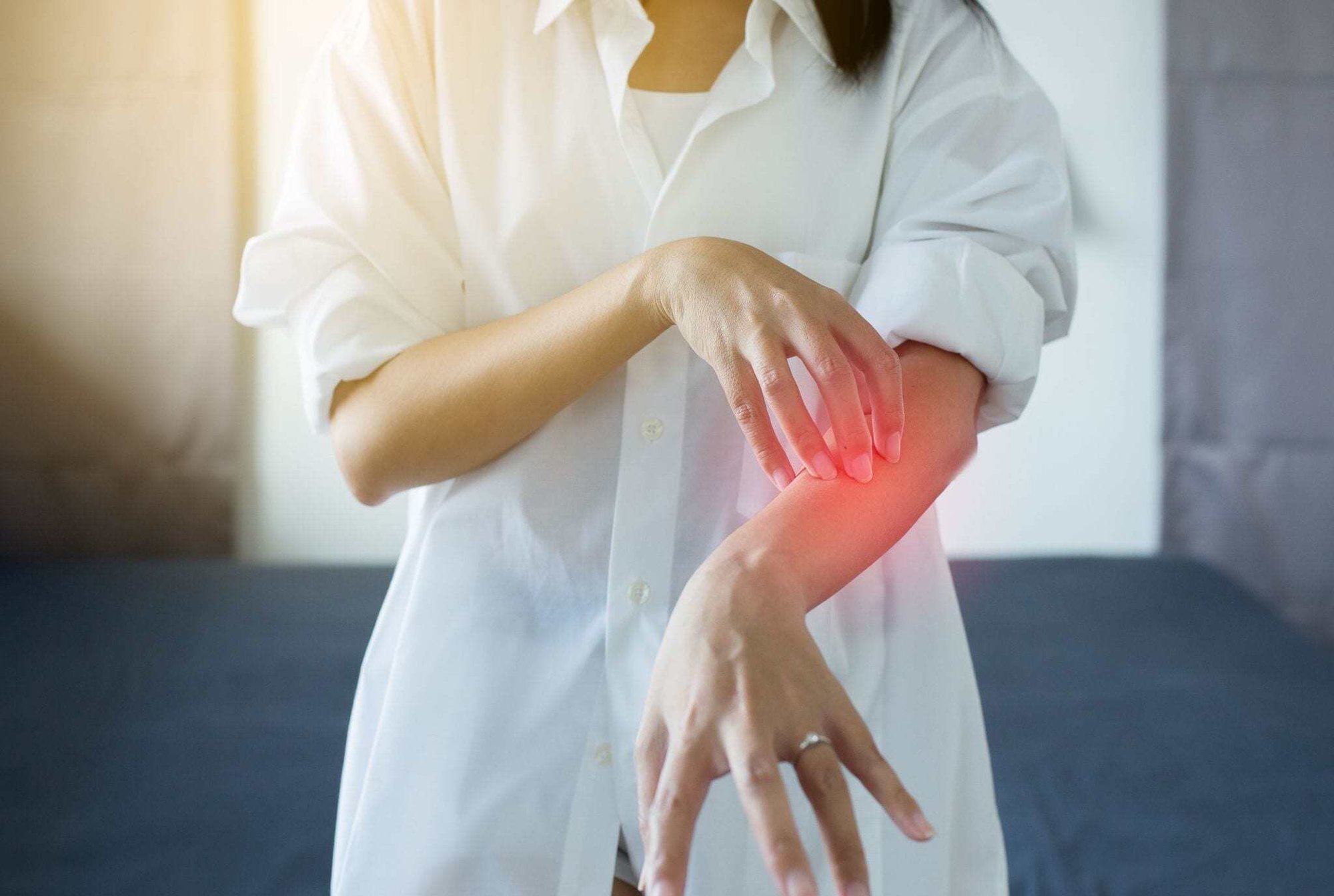Understanding Histamine Intolerance: Identifying and Tackling the Issue
Hello everyone,
I’m Dr. Vinny from Princeton Integrative Health, and today I want to dive into a topic that may be affecting many of you without your knowledge: histamine intolerance. Let's explore what histamine is, how it impacts your health, and how to manage histamine intolerance effectively.
What is Histamine?
Histamine is a vital molecule that plays a significant role in our immune responses, digestive processes, and brain functions. While it’s essential for maintaining our health, when histamine levels become imbalanced, it can lead to histamine intolerance, causing a range of symptoms that might leave you puzzled.
Imagine you’re enjoying your day, and suddenly, you’re struck with a headache, your skin flushes, or you start sneezing uncontrollably. If these situations sound familiar, histamine intolerance might be the culprit.
Recognizing Histamine Intolerance Symptoms
Histamine intolerance can be tricky to diagnose because its symptoms mimic many other common ailments. It occurs when there’s an imbalance between the buildup of histamine and the body’s ability to break it down. Think of your body as a bucket with holes in the bottom—ideally, the bucket fills and drains simultaneously. However, if the holes get clogged or the water flow increases, the bucket overflows, leading to symptoms such as:
- Digestive Issues: Diarrhea, bloating, and abdominal pain.
- Skin Reactions: Hives, rashes, eczema, general redness, and itching.
- Respiratory Problems: Sneezing, nasal congestion, and asthma-like symptoms.
- Neurological Symptoms: Headaches, migraines, dizziness, anxiety, and difficulty sleeping.
- Cardiovascular Symptoms: Rapid heartbeat or sudden drops in blood pressure after histamine-rich meals.
- Fatigue: Persistent tiredness and low energy levels.
- Joint Pain: Inflammation and discomfort in the joints.
- Sleep Disturbances: Trouble falling or staying asleep.
- Premenstrual Syndrome (PMS) and Irregular Periods: Exacerbated PMS symptoms and irregular menstrual cycles.
- Flushing: Sudden redness of the skin.
- Dizziness and Vertigo: Feelings of dizziness affecting balance and stability.

Why Symptoms Vary
The diversity of symptoms is due to histamine interacting with four different types of receptors in the body:
- H1 Receptor: Found in smooth muscles, the endothelium, and the central nervous system, playing a key role in allergic reactions, vascular permeability, and brain wakefulness.
- H2 Receptor: Located in the stomach lining, regulating gastric acid secretion and influencing heart rate.
- H3 Receptor: Found primarily in the central nervous system, regulating neurotransmitter release and affecting sleep, appetite, and cognition.
- H4 Receptor: Present in bone marrow and white blood cells, involved in immune responses and inflammation.
Understanding these receptors helps explain why histamine intolerance can manifest in so many ways, affecting digestion, sleep, skin health, and immune responses.
The Impact of Diet on Histamine Levels
Diet plays a crucial role in managing histamine intolerance. While it’s important to identify your triggers and avoid high-histamine foods, the goal is not to live on a low-histamine diet forever. Rather, it’s about using dietary adjustments as a tool while identifying the root cause of your intolerance.

Foods High in Histamine:
- Aged cheeses
- Fermented foods (sauerkraut, vinegar, soy sauce, yogurt)
- Alcoholic beverages (wine, beer, champagne)
- Processed meats (salami, sausage, smoked fish)
Histamine-Releasing Foods:
- Tomatoes, citrus fruits, bananas
- Chocolate, nuts, shellfish
Foods that Help Degrade Histamine:
- Fresh fruits and vegetables (except those mentioned above)
- Whole grains (rice, quinoa, corn)
- High-quality protein (freshly cooked meat, poultry, fish)
Managing Histamine Intolerance
To manage histamine intolerance effectively, consider the following strategies:
- Keep a Food Diary: Track what you eat and how it affects your symptoms to identify specific triggers.
- Prepare Meals Freshly: Histamine levels in food increase over time, so eating freshly prepared meals can help minimize your intake.
- Use Fresh Ingredients: Opt for fresh meats and produce over canned or processed options.
Histamine and Gut Health
Histamine significantly impacts our digestive health. An imbalance in gut bacteria can lead to an overproduction of histamine, causing symptoms like abdominal pain, bloating, and heartburn. Our intestines produce an enzyme called diamine oxidase (DAO), which breaks down histamine. However, factors such as gut inflammation, nutrient deficiencies, and certain medications can impair DAO production.
To support gut health and manage histamine levels, consider:
- Healing Your Gut: Repairing the gut lining while being mindful of histamine levels.
- Choosing Histamine-Friendly Probiotics: Opt for strains like Bifidobacterium infantis and Lactobacillus rhamnosus.
- Taking DAO Supplements: These can help break down histamine in your food.
- Replenishing DAO Cofactors: Ensure adequate intake of vitamin C, B6, and copper.
Other Lifestyle Modifications
Beyond diet, lifestyle changes can also help manage histamine intolerance:
- Maintain a Healthy Gut: Focus on gut health since much of the body’s histamine is processed there.
- Manage Stress: Techniques such as yoga, meditation, and regular exercise can reduce stress and histamine release.
- Avoid Environmental Triggers: Minimize exposure to factors like pollen or pet dander that can trigger histamine release.
By integrating these management strategies, you can effectively reduce the discomfort caused by histamine intolerance and lead a healthier, more comfortable life.
If you’re experiencing these symptoms, don’t wait for them to worsen. Take control of your well-being today. Schedule a Complimentary Discovery Call for a personalized assessment, access to a comprehensive stool test, and a tailored treatment plan. Together, we can work towards restoring your optimal health.
For more information, download our free guide, Essentials Guide to Histamine Intolerance.
Warm regards,
Dr. Vinny Princeton Integrative Health